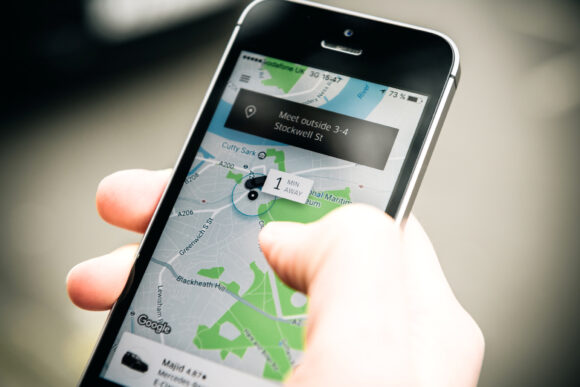A notice in Uber’s digital registration process requiring ride-share customers to take any individual claims to arbitration is enforceable, a New Jersey appeals court has ruled in a case involving passengers injured in an auto accident.
Three plaintiffs injured in the accident sued Uber, alleging negligence had caused the collision and their injuries and Uber was partly at fault, along with the drivers of the vehicles involved in the collision. Uber moved to compel arbitration of the claims against it based on the terms in its digital agreement.
The plaintiffs complained that the “pop-up” window for Uber’s terms did not expressly advise them of the arbitration agreement and that they were “not directed to or required to read” the terms of use. They argued that Uber failed to demonstrate that they had agreed to waive their right to a jury trial.
The appeals division of the Superior Court of New Jersey sided with Uber and affirmed a lower court in finding that the agreement is an enforceable “clickwrap” agreement, meaning an agreement that requires that a user consent to any terms or conditions by clicking on a dialog box on the screen in order to proceed with the internet transaction.
The court found that each of the three plaintiffs followed the Uber process – checking the box to indicate he or she had reviewed and agreed to the terms of use and clicking “confirm” before the October 3, 2021, automobile accident.
The court noted that an arbitration agreement must be the result of the parties’ mutual assent, and is not enforceable unless the consumer has reasonable notice of its existence. But a party may not claim lack of notice of the terms of an arbitration provision for failure to read it. As a general rule, “one who does not choose to read a contract before signing it cannot later relieve himself of its burdens,” the court added.
The court found that the title of the hyperlinked document and the language appearing below the hyperlinks next to the blank box “clearly put plaintiffs on reasonable inquiry notice” that when they checked the box beneath the link, they were agreeing to Uber’s terms of use.
The court also found that within the hyperlinked terms of use document, the title “Arbitration Agreement” appeared in larger, bold print to alert a consumer to the importance of the provision. Had plaintiffs left the agreement box unchecked, they would not have been able to proceed and would not have been able to access Uber’s ride-share services. The court concluded that by checking the box, plaintiffs represented they had reviewed and agreed to the terms of use and signaled their assent to those terms, including the arbitration agreement.
The court also pointed to the arbitration agreement language that states that “by agreeing to the Terms, you agree that you are required to resolve any claim that you may have against Uber on an individual basis in arbitration,” claims “will be settled by binding arbitration between you and Uber, and not in a court of law,” and “you and Uber are each waiving the right to a trial by jury.”
The court said the language is “sufficiently clear to place a consumer on notice that he or she is waiving a constitutional or statutory right.” The appeals court agreed that Uber’s is an enforceable clickwrap agreement.
Topics Claims New Jersey Oklahoma Sharing Economy Ridesharing
Was this article valuable?
Here are more articles you may enjoy.



 Q4 Global Commercial Insurance Rates Drop 4%, in 6th Quarterly Decline: Marsh
Q4 Global Commercial Insurance Rates Drop 4%, in 6th Quarterly Decline: Marsh  Chubb CEO Greenberg on Personal Insurance Affordability and Data Centers
Chubb CEO Greenberg on Personal Insurance Affordability and Data Centers  US Appeals Court Rejects Challenge to Trump’s Efforts to Ban DEI
US Appeals Court Rejects Challenge to Trump’s Efforts to Ban DEI  Pipeline Explodes at Delfin LNG Planned Project in Louisiana
Pipeline Explodes at Delfin LNG Planned Project in Louisiana 

